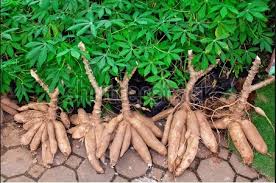A group of researchers from Kenya, Tanzania and Spain have joined forces to develop a breed of cassava which would be more resistant to the destructive effects of climate change.
The cooperative project, funded by the United Nations Food and Agriculture Organization (FAO) is targeted at achieving the Sustainable Development Goals (SDGs) and will have researchers from various agricultural research institutes in the three countries, including the Jomo Kenyatta University of Agriculture and Technology (JKUAT) in Kenya, Mikocheni Agricultural Research Institute (MARI) in Tanzania, and the Basque Institute for Research and Development in Agriculture (NEIKER) in Spain.
Professor Elijah Ateka from the Faculty of Agriculture at JKUAT and leader of the team highlighted the highpoint of the project to be evaluating cassava varieties in different environments for drought, heat and cold tolerance.
According to him, the project in Kenya is already analyzing varieties in several regions of the country for desired traits. Identified tolerant varieties will then be recommended to farmers for cultivation, while the same varieties will be used as parents to breed varieties with combined traits.
Cassava is one of the most important sources of food in Africa, Asia and South America and its cultivation is especially critical in Sub-Saharan Africa, where it can thrive in dry and semi-arid lands. AgroNigeria


